Leveraging a New (Food) System Narrative
June 16, 2016 1 Comment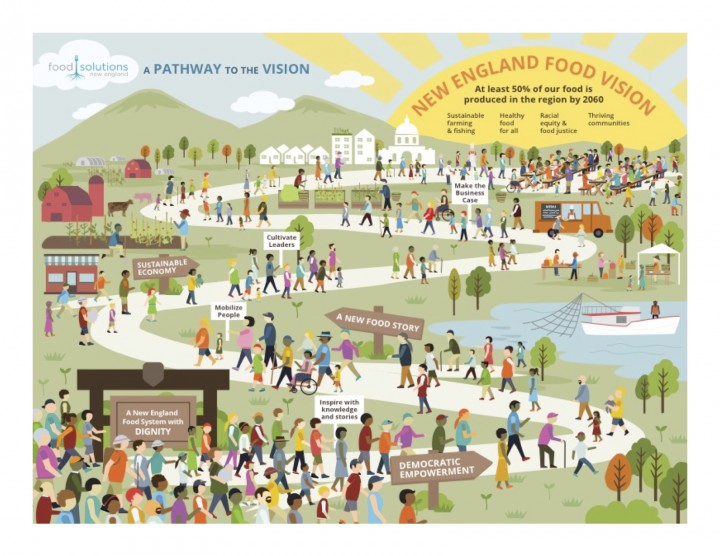 Last week over 190 delegates attended the 6th annual New England Food Summit in Bridgeport, Connecticut. This marked the completion of a cycle through all six New England states and an important moment in the evolution of Food Solutions New England, a network of networks that has been in development with IISC’s support around a bold Food Vision that sees the region becoming more connected and self-sufficient while supporting a more equitable, eco-logical and vibrant food economy.
Last week over 190 delegates attended the 6th annual New England Food Summit in Bridgeport, Connecticut. This marked the completion of a cycle through all six New England states and an important moment in the evolution of Food Solutions New England, a network of networks that has been in development with IISC’s support around a bold Food Vision that sees the region becoming more connected and self-sufficient while supporting a more equitable, eco-logical and vibrant food economy.
Leading up to the Summit, the FSNE Network Team engaged in a year-long system mapping and analysis process that yielded a few key systemic health indicators associated with the Vision as well as a set of leverage areas for framing and advancing regional strategies in the direction of the Vision:
- Engaging and mobilizing people for action
- Cultivating and connecting leadership
- Making the business case for a more robust, equitable and eco-logical regional food system
- Weaving diverse knowledge and inspiration into a new food narrative
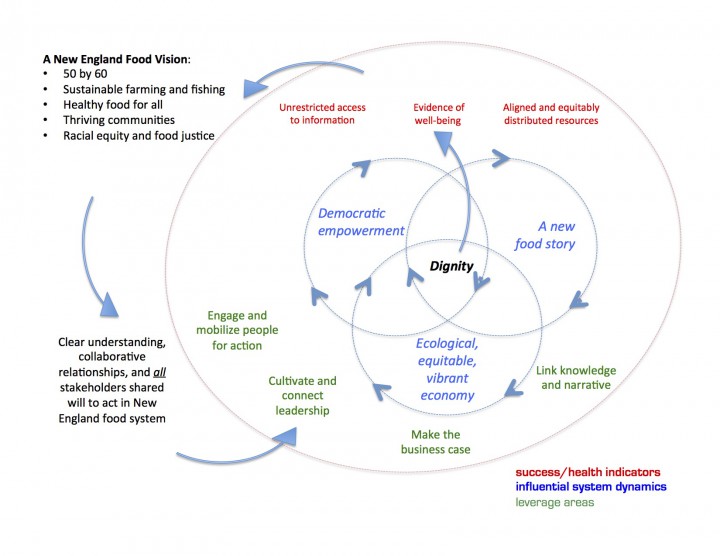 During the Summit, delegates engaged in conversation about these leverage areas, how they are already being addressed, and how they might guide collective action going forward. And they spent time diving deeper into the leverage area focused on a new and emerging food narrative.
During the Summit, delegates engaged in conversation about these leverage areas, how they are already being addressed, and how they might guide collective action going forward. And they spent time diving deeper into the leverage area focused on a new and emerging food narrative.
“Beware of the stories you read or tell; subtly, at night, beneath the waters of consciousness, they are altering your world.”
-Ben Okri
In the world where we at IISC spend most of our time – thinking about, supporting and working for social change – stories may seem somewhat abstract and soft, and yet experience shows that they can be formidable obstacles and important forces for change. The importance of narrative comes up more than many people might imagine in the networks we support, especially those that understand that changing a system is not purely about technical change; it’s also about addressing hearts and minds and culture.
Chimamanda Ngozi Adichie (pictured below), author of Americanah and We Should All Be Feminists and who has also given a very popular TED talk called “The Danger of a Single Story,” says,
“Many stories matter. Stories have been used to dispossess and to malign. But stories can also be used to empower, and to humanize. Stories can break the dignity of a people. But stories can also repair that broken dignity.”

And writer, historian and activist Rebecca Solnit adds in a recent interview,
“I feel so much of what we’re burdened by is bad stories, both people who have amnesia who don’t remember that the present was constructed by certain forces to serve certain elements, and can be deconstructed in that things could be very different … And that we have agency in that change.”
That really is the spirit of this leverage area – that there are existing dominant stories that constrain and limit, and others (concealed and emerging) that can help liberate, connect and create new possibilities. The New England Food Vision calls for a new food narrative, which many are already creating with and through their work in the region. And the point ultimately may not be to attempt to create a single new story; that risks being overly abstract and/or speak only to and for the privileged few. Rather a new food story is likely to be made up of many stories, a true diversity of stories, with some common threads.
What follows are some of the images, and a video (from Baraka Community Wellness), harvested from our conversations leading up to and during the Food Summit that add texture to the road ahead. What would you add?
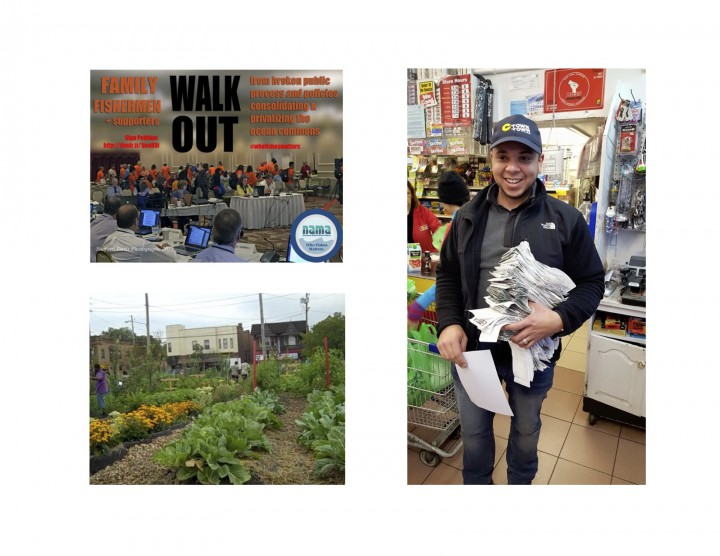
Images: (upper left) Fishermen stage a “walk out” over regional fishing policies that they believe are eradicating both fish and community-based fishing; (upper right) Jeff Perez carries 982 SNAP vouchers from customers at C-Town for fruits and vegetables; (below) Youth from Green Village Initiative in Bridgeport, CT. Food Summit participants posted stickies with themes for a new food narrative
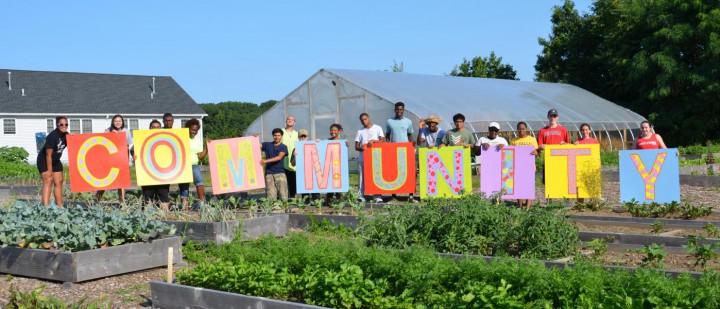
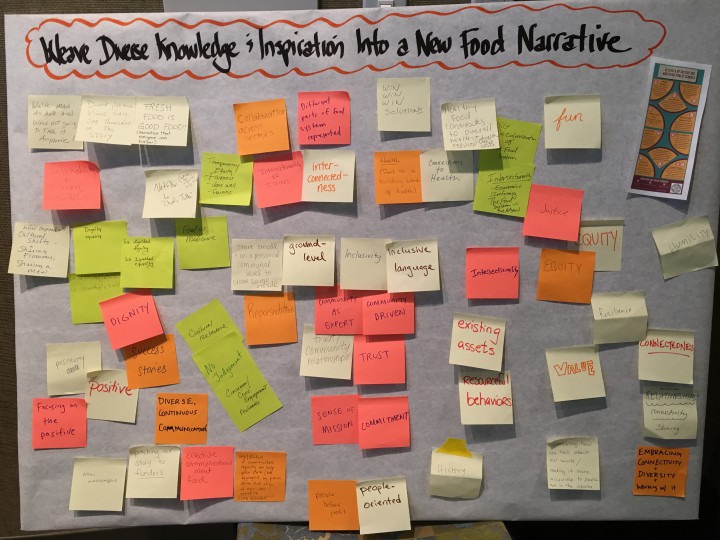
1 Comment